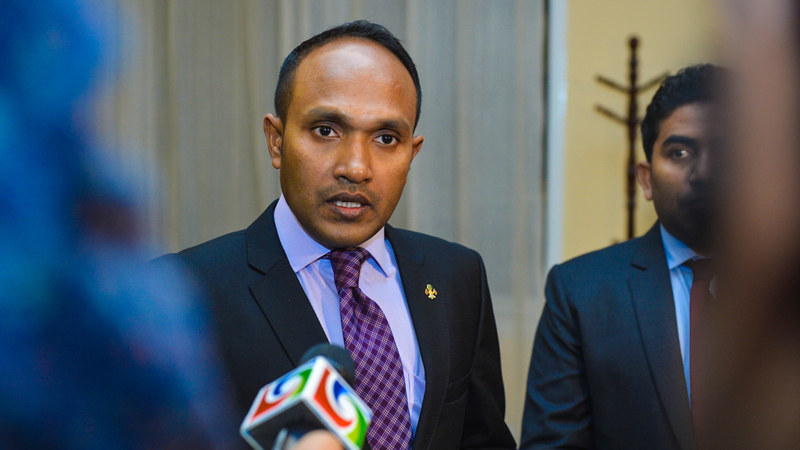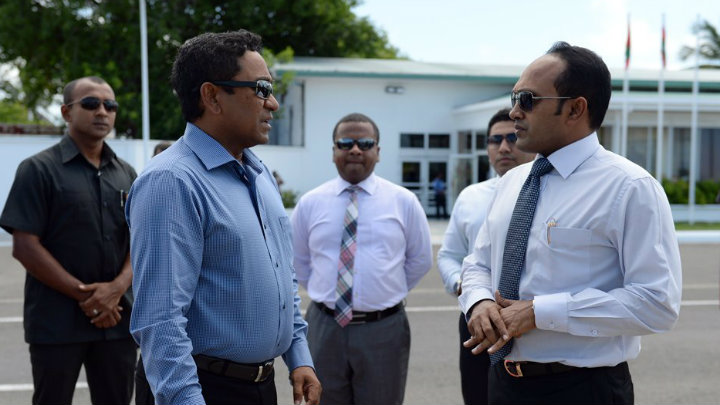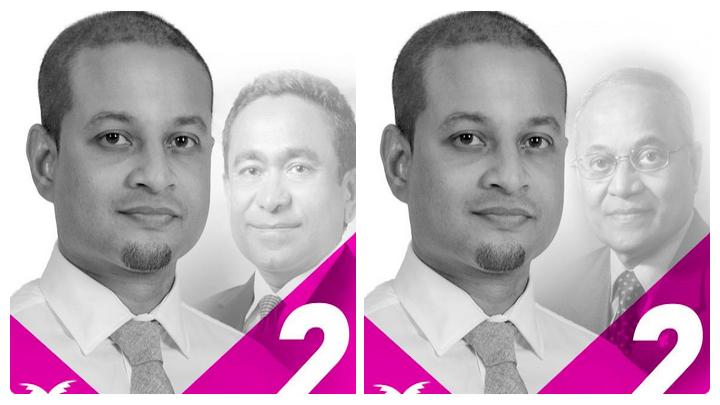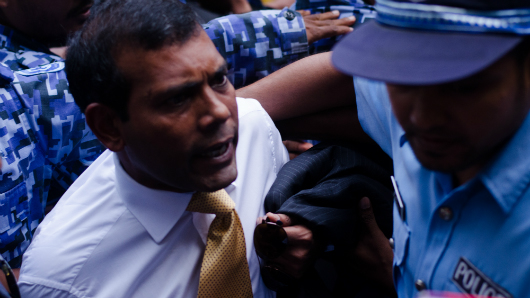Sittings of the People’s Majlis were suspended this week to block MPs from submitting changes to the long awaited penal code, which is due to come into force at midnight tonight.
The Supreme Court has compiled a 150-page draft of a new bill to overhaul the modern penal code. Explaining the decision to suspend sittings, a senior ruling party MP said: “We will not allow the judiciary to dictate laws and overstep its mandate.”
Minivan News has obtained some excerpts of the judiciary proposed bill. The apex court wants to set the age of criminal responsibility to seven years and jail terms and hefty fines for defaming state employees.
The new penal code, passed by the Majlis in 2014, was due to come into force in April this year. But the ruling Progressive Party of the Maldives (PPM) delayed its enforcement until July 16, claiming more time is needed to raise public awareness.
Attorney General Mohamed Anil and Prosecutor General Muhthaz Muhsin had opposed the delay. Judges have been working on a draft since then, multiple sources have told Minivan News.
The new penal code is to replace a law adopted in 1968. It sets the age of criminal responsibility at 15 years. Offenders between 15-18 years will be prosecuted by the Juvenile Court, and will receive lighter sentences.
While the draft proposed by the apex court also sets lighter terms for children between 7-18 years, it gives judges the discretion to mete out full punishments provided in the Islamic Shariah.
The apex court also wants to introduce hard labor in jail as a punishment.
Defamation of a state employee by using the media is punishable by up to eight months in jail or a MVR15,000 fine. Providing misleading statements about court proceedings is punishable by up to three years in jail and a maximum fine of MVR30,000.
Reporters will have to bear criminal responsibility for translating or reproducing statements issued by international bodies that defame state employees, the draft said. Meanwhile, courts can also shut down media outlets if defamatory statements are published.
If an unmarried man has extramarital intercourse, he will be sentenced to a year under house arrest and 100 lashes. An unmarried woman who simply invites extramarital sex is sentenced to 100 lashes and a year under house arrest.
The apex court’s draft also criminalizes abortion, unless it is carried out to save the mother’s life or for a reason stated in another law. The new penal code legalizes abortion up to three months after conception, and makes exemptions for cases of rape even after the three-month cut off.
Terrorism is loosely defined as committing murders, kidnappings, hijacking of vessels, damaging diplomatic missions with the intent of undermining the constitution or influence government policy. Offenders can be sentenced to 10-15 years in jail.
Other offences in the draft include leaving goods on the street or placing chimneys or drainage systems in a manner that disturbs others. The offence is punishable with up to three months under house arrest and a fine.
Meanwhile, if the guardian of a mentally challenged person “sets them loose in a public area and they go on to disturb or cause harm,” the guardian will be punished with three months of house arrest and a fine of up to MVR2,000.
A source familiar with the apex court’s draft said it will undo ten years of work put into modernizing the Maldives’ criminal laws.
The existing penal code of 1968 has been criticized as draconian, outdated and not in line with the Maldives’ obligations under international human rights conventions.
With the new penal, the Maldives will become the first Islamic country to adopt a criminal law compatible with both the Islamic Shariah and international human rights standards.
The Maldivian judiciary has been widely criticized over politicization and the lack of academic qualification of sitting judges. The new penal code will regulate judge’s discretion in meting out punishments.
The landmark law brings together provisions in some 90 laws that specify criminal offences under one law.







